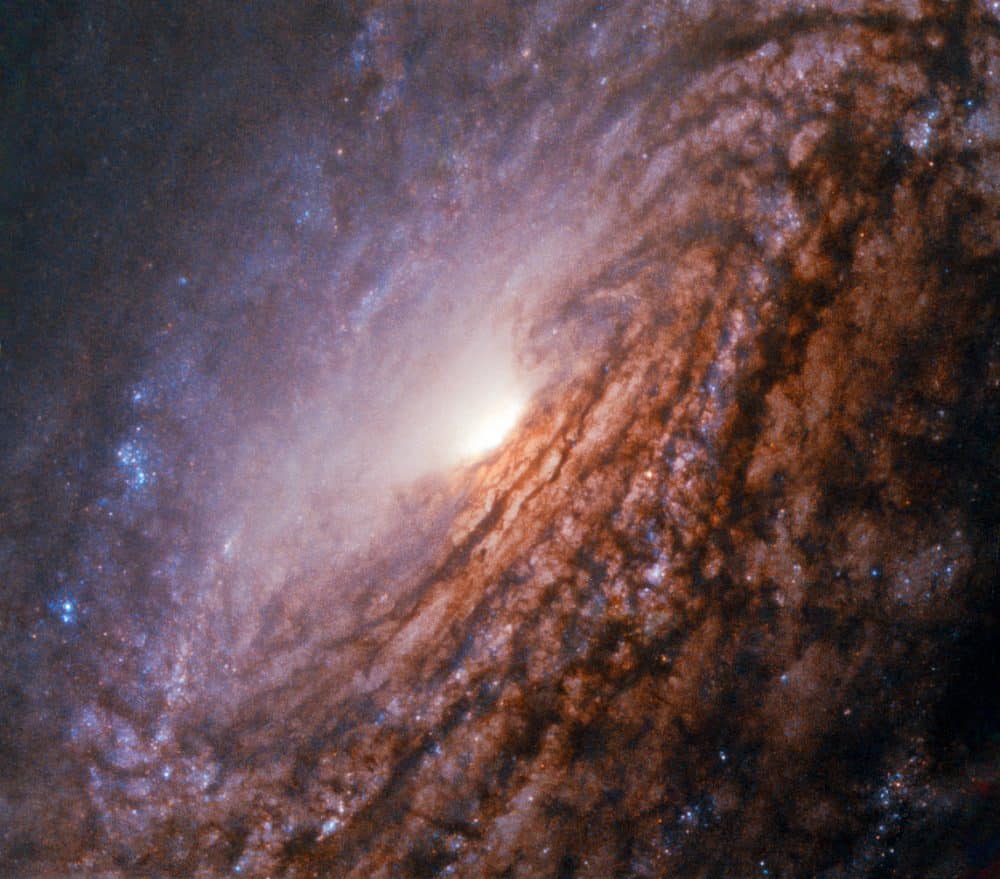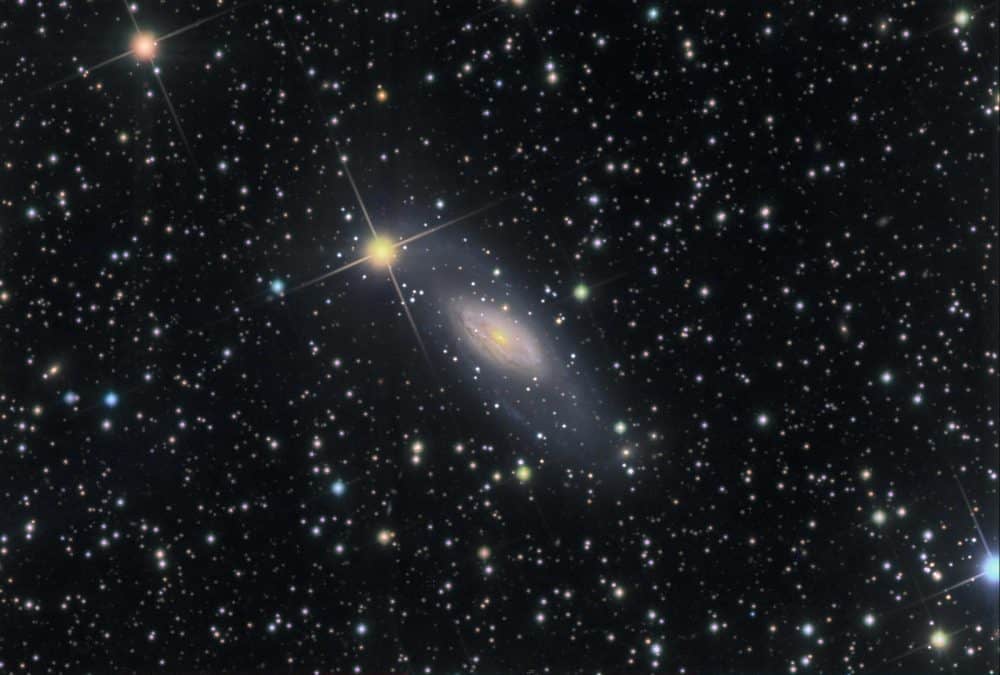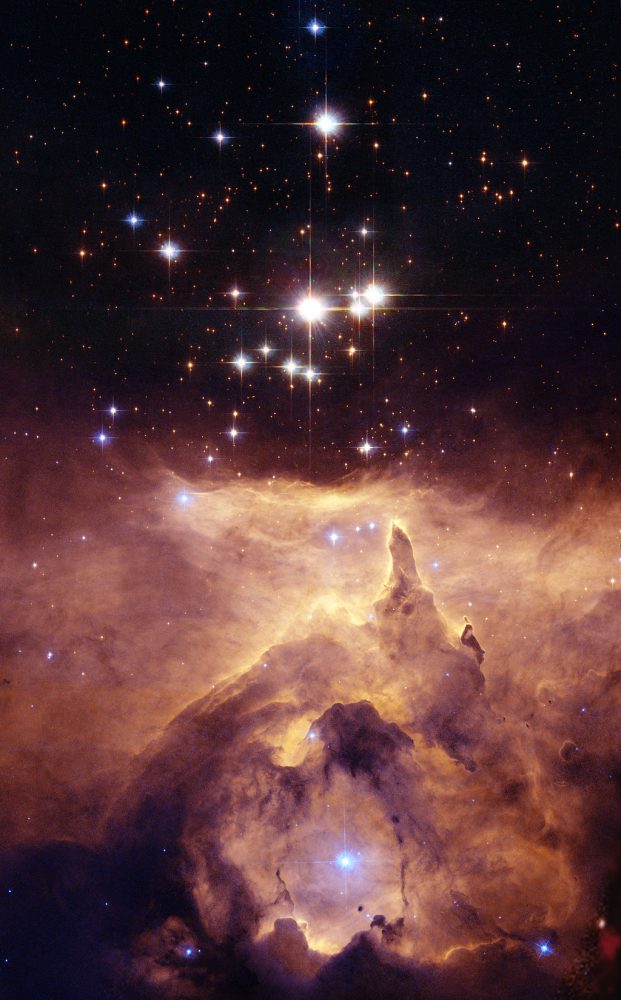Blog
Cleopatra Brown (December 8, 1907 or 1909 – April 15, 1995), known as Cleo Brown, C. Patra Brown or Cleo Patra Brown, was an American blues and jazz vocalist and pianist. She was the first woman instrumentalist to receive the NEA Jazz Masters Fellowship.
Brown was born in Meridian, Mississippi, and sang in church as a child. In 1919 her family moved to Chicago, and she began learning piano from her brother who worked with “Pine Top” Smith. From around 1923 she worked in vaudeville, as well as taking gigs in clubs. In 1935, she replaced Fats Waller as pianist on New York radio station WABC.
From the 1930s to the 1950s she toured the United States regularly, recording for Decca Records (among other labels) along the way and recording many humorous, ironic titles such as “Breakin’ in a New Pair of Shoes”, “Mama Don’t Want No Peas and Rice and Coconut Oil”, “When Hollywood Goes Black and Tan”, and “The Stuff Is Here and It’s Mellow”. Her stride piano playing was often compared to Fats Waller, and she is credited as an influence on Dave Brubeck, who played during the intermissions of her shows, and Marian McPartland. She played regularly at clubs in Chicago, toured widely, and recorded for both Decca and Capitol Records.
Brown began to shy away from singing bawdy blues songs because of her deepening religious beliefs and, in 1953, she retired from music and became a nurse. The song “Sweet Cleo Brown” was recorded by Brubeck in tribute to her. After she retired from nursing, she was rediscovered, living in Colorado, in the 1980s after being tracked down by Marian McPartland. She returned to record again, and performed on National Public Radio.
She died on April 15, 1995 in Denver, Colorado.
more...This Picture of the Week shows the unbarred spiral galaxy NGC 5033, located about 40 million light-years away in the constellation of Canes Venatici (The Hunting Dogs). The galaxy is similar in size to our own galaxy, the Milky Way, at just over 100 000 light-years across. Like in the Milky Way NGC 5033’s spiral arms are dotted with blue regions, indicating ongoing star formation. The blue patches house hot, young stars in the process of forming, while the older, cooler stars populating the galaxy’s centre cause it to appear redder in colour.
In contrast to the Milky Way NGC 5033 is missing a central bar. Instead it has a bright and energetic core called an active galactic nucleus, which is powered by a supermassive black hole. This active nucleus gives it the classification of a Seyfert galaxy. Due to the ongoing activity the core of NGC 5033 shines bright across the entire electromagnetic spectrum. This released energy shows that the central black hole is currently devouring stars, dust and gas getting to close to it. As this matters falls onto the supermassive black hole, it radiates in many different wavelengths.
While its relative proximity to Earth makes it an ideal target for professional astronomer to study its active nucleus in more detail, its big apparent size on the night sky and its brightness also makes it a beautiful target for amateur astronomers.
more...Thomas Alan Waits (born December 7, 1949) is an American singer-songwriter and actor. Known for his distinctive deep gravelly singing voice, his lyrics are characterized by their focus on characters living on the underside of U.S. society. His early music during the 1970s was primarily in the jazzgenre, but later work moved towards blues, vaudeville, and experimental music.
Waits was raised in a middle-class family in Whittier, California and then San Diego. Inspired by Bob Dylan and the Beat Generation, as a teenager he began singing on the San Diego folk music scene. Relocating to Los Angeles, he worked as a songwriter before signing a recording contract with Asylum Records. His first albums, the jazz-oriented Closing Time (1973) and The Heart of Saturday Night (1974), reflected his lyrical interest in nightlife, poverty, and criminality. Repeatedly touring the U.S., Europe, and Japan, he attracted greater critical recognition and commercial success with Small Change (1976), which he followed with Blue Valentine (1978) and Heartattack and Vine (1980). He produced the soundtrack for Francis Ford Coppola‘s 1981 film One from the Heart and subsequently made cameo appearances in several Coppola films.
In the early 1980s, Waits married Kathleen Brennan, broke from his manager and record label, and moved to New York City. Under Brennan’s influence, he pursued a new musical aesthetic, reflected in a series of albums released by Island Records: Swordfishtrombones (1983), Rain Dogs(1985), and Franks Wild Years (1987). He continued appearing in film, taking a leading role in Jim Jarmusch‘s Down by Law (1986). In the 1990s, his albums—Bone Machine (1992), The Black Rider (1993), and Mule Variations (1999)—earned him increasing critical acclaim and various Grammy Awards. In the late 1990s he switched to the record label Anti-, who released Blood Money (2002), Alice (2002), Real Gone (2004), and Bad as Me(2011).
more...Louis Leo Prima (December 7, 1910 – August 24, 1978) was an American singer, actor, songwriter, bandleader, and trumpeter. While rooted in New Orleans jazz, swing music, and jump blues, Prima touched on various genres throughout his career: he formed a seven-piece New Orleans-style jazzband in the late 1920s, fronted a swing combo in the 1930s and a big band group in the 1940s, helped to popularize jump blues in the late 1940s and early to mid 1950s, and performed frequently as a Vegas lounge act beginning in the 1950s.
From the 1940s through the 1960s, his music further encompassed early R&B and rock’n’roll, boogie-woogie, and even Italian folk music, such as the tarantella. Prima made prominent use of Italian music and language in his songs, blending elements of his Italian identity with jazz and swing music. At a time when “ethnic” musicians were often discouraged from openly stressing their ethnicity, Prima’s conspicuous embrace of his Italian ethnicity opened the doors for other Italian-American and “ethnic” American musicians to display their ethnic roots.
Prima was from a musical Italian American family in New Orleans. His father, Anthony Prima, was the son of Leonardo Di Prima, a Sicilian immigrant from Salaparuta, while his mother, Angelina Caravella, had immigrated from Ustica as a baby.
more...Blind John Davis (December 7, 1913 – October 12, 1985) was an American blues and boogie-woogie pianist and singer. He is best remembered for his recordings, including “A Little Every Day” and “Everybody’s Boogie”.
Davis was born in Hattiesburg, Mississippi, and relocated with his family to Chicago at the age of two. Seven years later he had lost his sight. In his early years Davis backed Merline Johnson, and by his mid-twenties he was a well-known and reliable accompanying pianist. Between 1937 and 1942, he recorded with Big Bill Broonzy, Sonny Boy Williamson I, Tampa Red, Red Nelson, Merline Johnson, and others. He also made several records of his own, singing in his lightweight voice.
more...World Music on Flamenco Fridays with Tangos y Bulerias
Antonio Fernández Díaz known as Fosforito, is a flamenco singer and winner of the fifth Golden Key of flamenco singing. Only five of these have been awarded since the award’s inception in 1862. Its previous winners were Tomás “El Nitri,” Manuel Vallejo, Antonio Mairena, and Camarón de la Isla.
more...
https://www.youtube.com/watch?v=8vRGFU7XS_k
more...NGC 7013 is another spiral galaxy. It is tilted slightly toward us so that we can see the galaxy “arms”, however, the classification of this galaxy puts it into either a restricted spiral class or lenticular class. The arms in the inner ring appear to completely disconnect from the center (hence ring), while the outer stars appear to have very little arm pattern (hence lenticular). However in this recent image, more of the arms and connections to the interior “ring” are slightly evident. The bright yellowish star may look like its in one of the arms, but it is in our own galaxy. It is in fact about 25 times fainter than the faintest star you can see at night and while it looks large its size is over a million million times smaller than the more distance galaxy. Below is an original image I took of this galaxy with the C-11. The stats for this galaxy are RA: 21h 03m 33.5s, Dec: +29° 53′ 50″, Mag: 12.4 (B), Size: 4.4’x1.4′, and Class: SA(r)0/a.
NGC 7013 is a relatively nearby spiral or lenticular galaxy estimated to be around 37 to 41.4 million light-years away from Earth in the constellation of Cygnus. NGC 7013 was discovered by English astronomer William Herschel on July 17, 1784 and was also observed by his son, astronomer John Herschel on September 15, 1828.
more...Miroslav Ladislav Vitouš (born 6 December 1947) is a Czech jazz bassist who has had an extensive career in the US.
Born in Prague, he began the violin at age six, and started playing the piano at age ten, and bass at fourteen. As a young man in Europe, Vitouš was a competitive swimmer. One of his early music groups was the Junior Trio with his brother Alan on drums and fellow Czech luminary-to-be Jan Hammer on keyboards. He studied music at the Prague Conservatory (under František Pošta), subsequently winning an international music contest in Vienna, earning him a scholarship to the Berklee College of Music in Boston, Massachusetts, USA.
In 1967, in Chicago, Miles Davis saw Vitous playing with Clark Terry and invited him to join his group for a residency at New York’s The Village Gate.
Vitouš’s virtuoso jazz bass playing has led critics to place him in the same league as Scott LaFaro, Dave Holland, Niels-Henning Ørsted Pedersenand Arild Andersen. A representative example of Vitouš’s double bass playing is Now He Sings, Now He Sobs (1968), with Chick Corea on piano and Roy Haynes on drums. This album shows his strong rhythmic sense, innovative walking lines, and intensity and abandon as an improviser.
more...Eddie Gladden (December 6, 1937 in Newark, New Jersey – September 30, 2003) was an American jazz drummer.
Gladden played professionally from 1962 in his hometown of Newark. In 1972 he began working with James Moody, and subsequently spent time performing and/or recording with Eddie Jefferson, Richie Cole, Cecil Payne, Horace Silver, David Fathead Newman, Larry Young, Freddie Roach, Jimmy McGriff, Richard “Groove” Holmes, Kirk Lightsey, Clifford Jordan, Albert Dailey, Jimmy Ponder, Shirley Scott, and Mickey Tucker, among others. He played in Dexter Gordon‘s quartet from 1977, touring and recording with him copiously.
https://www.youtube.com/watch?v=bkTet5Yd3Kk&t=38s
more...William John Evans (August 16, 1929 – September 15, 1980), best known as Bill Evans, was an American jazz pianist and composer who mostly played in jazz trios.Evans’s use of impressionist harmony, inventive interpretation of traditional jazz repertoire, block chords, and trademark rhythmically independent, “singing” melodic lines continue to influence jazz pianists today.
Born in Plainfield, New Jersey, in 1929, he was classically trained, and studied at Southeastern Louisiana University and the Mannes School of Music, where he majored in composition and received the Artist Diploma. In 1955, he moved to New York City, where he worked with bandleader and theorist George Russell. In 1958, Evans joined Miles Davis‘s sextet, where he was to have a profound influence. In 1959, the band, then immersed in modal jazz, recorded Kind of Blue, the best-selling jazz album of all time. During that time, Evans was also playing with Chet Baker for the album Chet.
In late 1959, Evans left the Miles Davis band and began his career as a leader, with bassist Scott LaFaro and drummer Paul Motian, a group now regarded as a seminal modern jazz trio. In 1961, ten days after finishing an engagement at the New York Village Vanguard jazz club (where the highly acclaimed Sunday at the Village Vanguard and Waltz for Debby albums were recorded) LaFaro died in a car accident. After months of seclusion, Evans re-emerged with a new trio, featuring bassist Chuck Israels.
In 1963, Evans recorded Conversations with Myself, an innovative solo album using the unconventional (in jazz solo recordings) technique of overdubbing over himself. In 1966, he met bassist Eddie Gómez, with whom he would work for eleven years. Many successful albums followed, in trio, duo, and solo settings, such as Bill Evans at the Montreux Jazz Festival, Alone, and The Bill Evans Album, among others.
Many of Evans’s compositions, such as “Waltz for Debby“, have become standards, played and recorded by many artists. Evans was honored with 31 Grammy nominations and seven awards, and was inducted into the Down Beat Jazz Hall of Fame.
Evans grew up in North Plainfield, New Jersey, the son of Harry and Mary Evans (née Soroka). His father was of Welsh descent and ran a golf course; his mother was of Carpatho-Rusyn ancestry and descended from a family of coal miners.
more...The star cluster Pismis 24 lies in the core of the large emission nebula NGC 6357 that extends one degree on the sky in the direction of the Scorpius constellation. Part of the nebula is ionised by the youngest (bluest) heavy stars in Pismis 24. The intense ultraviolet radiation from the blazing stars heats the gas surrounding the cluster and creates a bubble in NGC 6357. The presence of these surrounding gas clouds makes probing into the region even harder.
NGC 6357 is a diffuse nebula near NGC 6334 in the constellation Scorpius. The nebula contains many proto-stars shielded by dark disks of gas, and young stars wrapped in expanding “cocoons” or expanding gases surrounding these small stars. It is also known as the Lobster Nebula.
This nebula was also given the name War and Peace Nebula by the Midcourse Space Experiment scientists because of its appearance. They said that in infrared images the bright, western part resembles a dove, while the eastern part looks like a skull.
It is located about 5500 light years away from Earth
more...Egberto Amin Gismonti (born December 5, 1947 in Carmo, state of Rio de Janeiro) is a Brazilian composer, guitarist and pianist.
Gismonti was born in the small city of Carmo, state of Rio de Janeiro, Brazil, into a musical family. His mother was from Sicily and his father was from Beirut, Lebanon. At the age of six, he started studying the piano at the Brazilian Conservatory of Music. After studying the classical repertoire in Brazil for fifteen years, he went to Paris to delve into modern music. He studied with Nadia Boulanger (1887–1979), after acceptance as a student by the composer Jean Barraqué, a student of Anton Webern and Schoenberg. Boulanger encouraged Gismonti to write the collective Brazilian experience into his music.
more...
Art Davis (December 5, 1934 – July 29, 2007) was a double-bassist, known for his work with Thelonious Monk, John Coltrane, Dizzy Gillespie, McCoy Tyner and Max Roach.
Davis was born in Harrisburg, Pennsylvania, where he began studying the piano at the age of five, switched to tuba, and finally to bass while attending high school. He studied at Juilliard and Manhattan School of Music but graduated from Hunter College.
As a New York session musician, he recorded with many pop acts and also in symphony orchestras such as the Los Angeles Philharmonic. Art Davis was a professor at Orange Coast College.
Davis is also known for starting a legal case that led to blind auditions for orchestras.
Davis earned a Ph.D. in clinical psychology from New York University in 1982. He moved in 1986 to southern California, where he balanced his teaching and practicing of psychology with jazz performances.
more...Richard Wayne Penniman (born December 5, 1932), known as Little Richard, is an American recording artist, singer-songwriter and actor.
A pop music and culture icon, Little Richard’s most-celebrated work dates from the mid-1950s when his dynamic music and charismatic showmanship presaged the rise of rock and roll. His music influenced many other popular music genres, including soul, funk and hip hop and shaped generations of rhythm and blues artists.
Little Richard has been honored by many institutions. He was inducted into the Rock and Roll Hall of Fame as part of its first group of inductees in 1986. He was also inducted into the Songwriters Hall of Fame. He is the recipient of a Lifetime Achievement Award from the Recording Academy and a Lifetime Achievement Award from the Rhythm and Blues Foundation. Little Richard’s “Tutti Frutti” (1955) was included in the National Recording Registry of the Library of Congress in 2010, which stated that his “unique vocalizing over the irresistible beat announced a new era in music.” In 2015, the National Museum of African American Music[1] honored Little Richard with a Rhapsody & Rhythm Award for his role in the formation of popular music genres and in helping shatter racial divisions in the music industry.
Little Richard was born Richard Wayne Penniman on December 5, 1932, in Macon, Georgia. He was the third of twelve children of Leva Mae (née Stewart) and Charles “Bud” Penniman. His father was a church deacon who sold bootlegged moonshine on the side and owned a nightclub, the Tip In Inn. His mother was a member of Macon’s New Hope Baptist Church.
more...More Posts
- Happy Valentines Day 2022
- Cosmos IC 1805
- Latifa
- Tim Buckley
- Merl Saunders
- Dwike Mitchell
- Magic Sam
- World Fusion with Mahsa Vahdat and Solveig Slettahjell
- Daily Roots with Bob Marley/Playing for Change
- Echos of Freedom by James Baldwin
- Cosmos KJPN 8
- Peter Gabriel
- King Floyd
- Moreira Chonguiça
- Wardell Gray
- World Music with IFÉ
- Daily Roots with Lee Scratch Perry
- Cosmos NGC 253
- Ray Manzarek
- Omar Hakim


